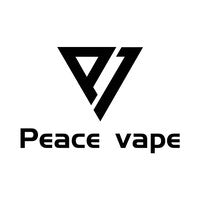
On Oct. 1, Oklahoma will publish a list of vaping products allowed for sale in the state, giving authorities the information they need to enforce the state’s new partial vape ban. A month later, Louisiana will begin enforcing a similar law.
The laws prohibit sales of products that have not been authorized for sale by an FDA marketing granted order (MGO) or do not have premarket tobacco applications (PMTAs) still undergoing review by the agency.
Oklahoma: vape shops will be targets
Manufacturers were required to submit a document by July 1 to the Oklahoma Alcoholic Beverage Laws Enforcement (ABLE) Commission, attesting under penalty of perjury that the products listed were available for sale before Aug. 1, 2016 (the effective date of the FDA’s Deeming Rule), and that a PMTA had been submitted for each product on or before the Sept. 9, 2020 PMTA submission deadline. Manufacturers are required to notify the state within 30 days of a change to the product’s authorization status.
The bill creating the Oklahoma law passed the state legislature in 2021, but vaping advocates were able last year to get implementation postponed until 2023. Attempts this year to repeal the law or delay it again until 2024 were unsuccessful.
The law will make vape shops selling bottled e-liquid and any store selling disposable vapes enforcement targets for local authorities. It will be a crime to sell any product not named on Oklahoma’s list, or to lie about the authorization status of any product submitted to the list. That also applies in the other states named in this article.
Red tape for small vape is a competitive advantage for Big Tobacco
The law—and similar ones passed in Alabama, Louisiana and Utah, and defeated in other states—was promoted to lawmakers by tobacco companies like R.J. Reynolds, maker of Vuse e-cigarettes. The tobacco industry resents having to compete with small independent manufacturers and vape shops, most of which don’t sell tobacco industry products. Because the tobacco companies are rich and have large dedicated compliance departments, jumping through nitpicky legal hoops to sell their products is a competitive advantage for them.
The reason these laws allow sales of products with pending PMTAs (instead of just those with actual FDA authorization) is that the most popular convenience store vaping products made by the big companies—the Vuse Alto and Juul Labs’ JUUL device—have not been authorized for sale by the FDA, but do have pending PMTAs. The laws were deliberately crafted to benefit those companies.
PMTA-only laws in Louisiana and other states
The story is much the same in Louisiana—but even worse for consumers. The state passed its PMTA-only law earlier this year, and the timeline is a month behind Oklahoma’s. The law requires manufacturers to submit to the state Office of Alcohol and Tobacco Control (ATC) a certification that products sold in Louisiana meet the same standards demanded by Oklahoma. They must also pay $100 each year for each product listed by the state.
The law also requires vape retailers to buy products only from wholesalers located in Louisiana, which could severely limit product availability in vape shops.
Manufacturers selling in Louisiana must submit attestations for each product to the ATC by Oct. 1. Enforcement will begin Nov. 1 or on the date the ATC makes the product list available to the public.
Alabama’s PMTA-only law doesn’t vary substantially from the others, but manufacturers must pay a one-time total $2,000 fee (and a $500 annual renewal fee) to list their products on the state’s “ENDS Products Directory.” There are over 1,600 products currently on the list.
In Utah, there is no public list of allowed products, but retailers must retain sales records and be able to prove the products sold meet the standards of the law. There is also a weird twist: depending on a product’s PMTA status, it could have different nicotine strength or content limits.
Products that receive FDA marketing authorization have no nicotine strength limits. Sealed (closed-system) products with a submitted PMTA (but not authorization) are capped at 59 mg/mL nicotine (that’s the nic strength in a JUUL). Bottled e-liquid with a submitted PMTA (but not authorization) are limited to a total of 360 mL per container, with nicotine strength not exceeding 24 mg/mL or less.
